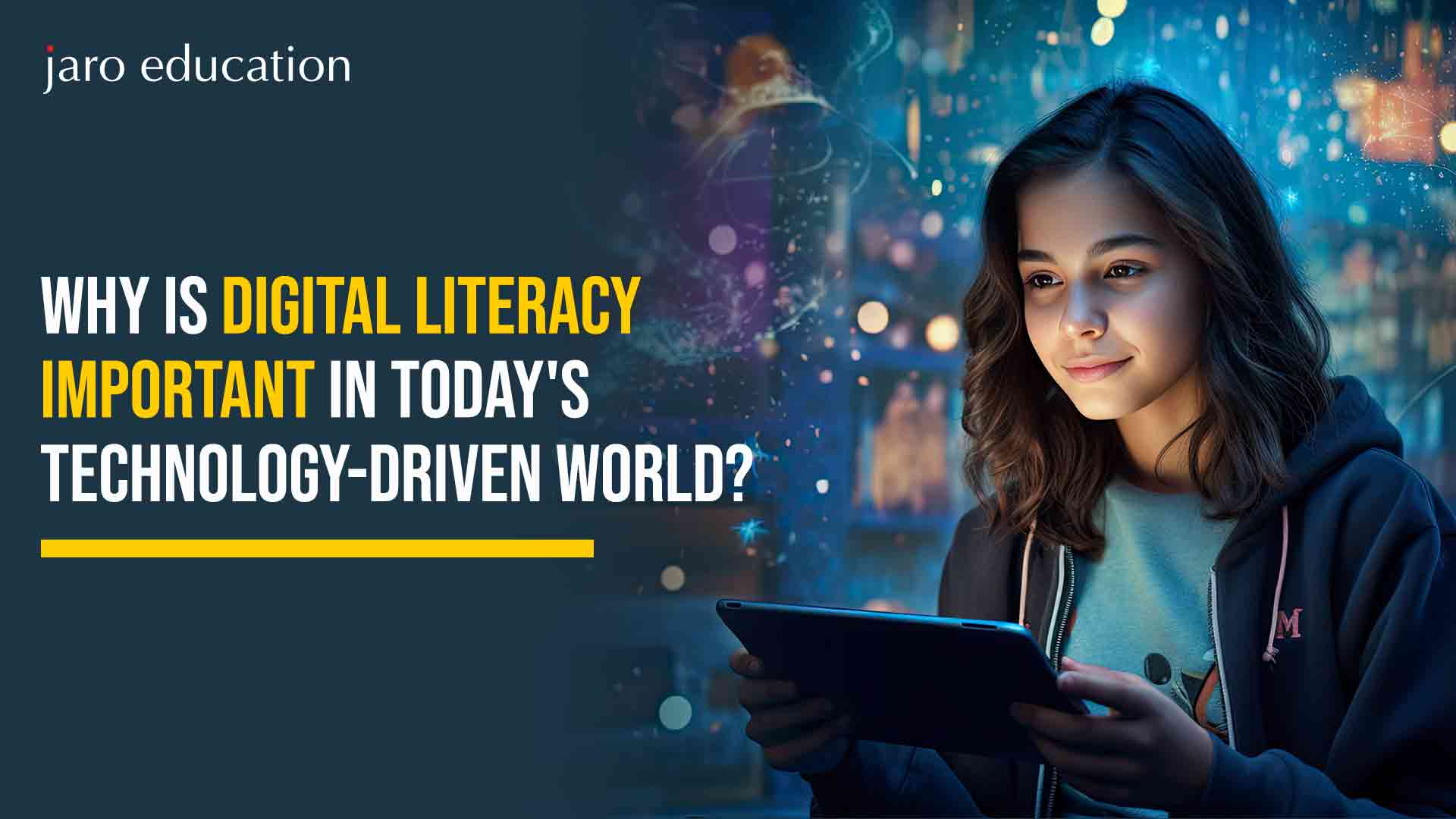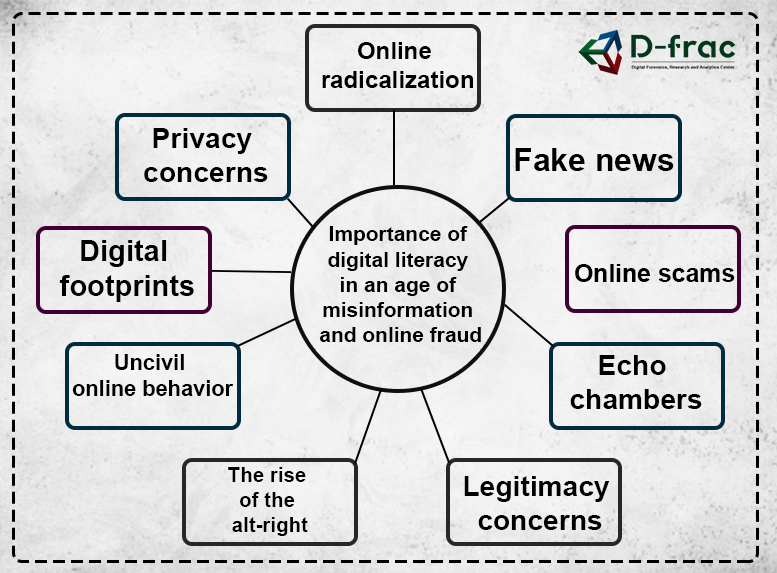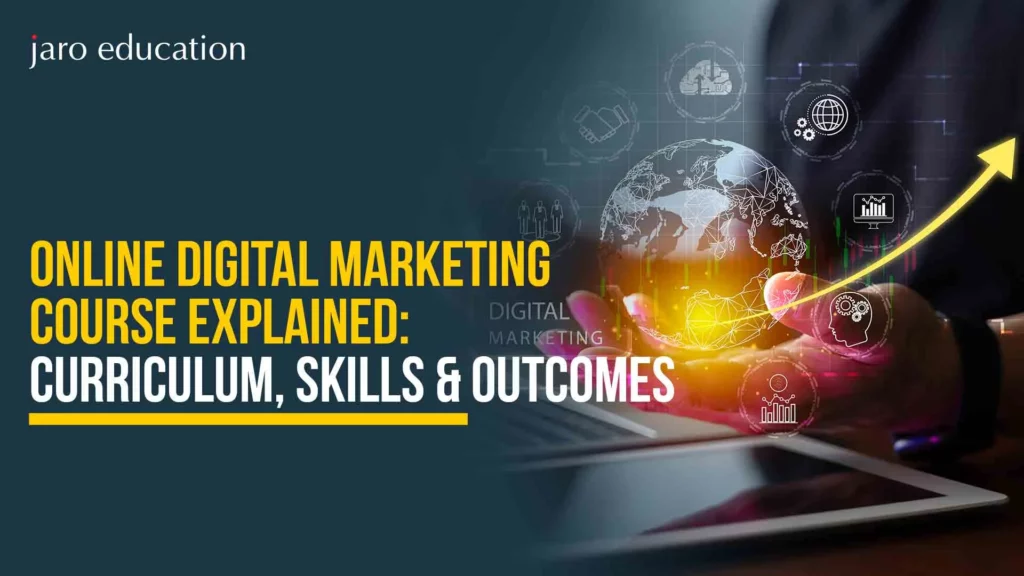Why is Digital Literacy Important in Today's Technology-Driven World?
Table of Contents

In a world increasingly dominated by technology, digital literacy has emerged as an essential skill for navigating the complexities of modern life. From online banking to virtual classrooms, digital literacy enables individuals to engage with the digital ecosystem confidently and effectively. This blog explores the importance of digital literacy, its role in education and finance, and the advantages it offers in shaping a more inclusive and empowered society.
Understanding Digital Literacy
At its core, digital literacy or digital skills refers to the ability to use digital tools, platforms, and resources proficiently. It encompasses a range of skills, including accessing information online, evaluating the credibility of digital content, communicating effectively through digital channels, and safeguarding one’s digital presence. In today’s technology-driven society, digital skills areis as critical as traditional literacy, serving as a foundation for personal and professional success.
The Importance of Digital Literacy in Modern Society
The importance of digital literacy cannot be overstated in a world where technology shapes almost every facet of daily life. Here are some key reasons why digital literacy is indispensable:
- Bridging the Digital Divide: Digital skills ensures that individuals can access opportunities and resources, reducing inequalities caused by lack of access to technology.
- Empowering Individuals: From applying for jobs to managing personal finances, digital skills empower people to make informed decisions and take control of their lives.
- Driving Economic Growth: A digitally literate workforce is essential for innovation, productivity, and competitiveness in today’s global economy.
- Promoting Civic Engagement: Digital platforms have become crucial for participating in social and political activities, from signing petitions to engaging in online debates.

*D-frac
Digital Sk in Education: Preparing for the Future
The role of digital literacy in education has expanded dramatically in recent years. Schools, colleges, and universities worldwide are integrating digital tools into their teaching methodologies to enhance learning experiences and prepare students for a technology-driven world.
1.Enhancing Learning Outcomes:
- Digital tools like e-books, online tutorials, and educational apps provide diverse learning resources that cater to different learning styles.
- Virtual labs and simulations offer hands-on experience in a risk-free environment, deepening students’ understanding of complex concepts
2.Fostering Critical Thinking:
- Teaching students how to evaluate the reliability of online sources develops critical thinking skills and combats misinformation.
3.Bridging Educational Gaps:
- Online learning platforms and digital classrooms ensure that education is accessible to students in remote areas, overcoming geographical barriers.
The integration of digital literacy in education is not just about technology; it’s about preparing students to thrive in a rapidly evolving world.
The Role of Digital Financial Literacy
As financial transactions increasingly move online, digital financial literacy has become a vital component of overall digital skills. It equips individuals with the skills needed to manage their finances in a digital environment, ensuring financial security and independence.
1.Understanding Online Banking:
- From setting up accounts to making transactions, digital financial literacy helps individuals navigate online banking systems securely.
2.Managing Digital Payments:
- With the rise of payment apps and digital wallets, individuals must understand how to use these tools effectively and protect themselves from fraud.
3.Making Informed Decisions:
- Access to online financial tools and resources allows individuals to compare products, calculate investments, and plan budgets more efficiently.
Promoting digital financial literacy is crucial for fostering economic inclusion and helping individuals participate fully in the digital economy.
Advantages of Digital Literacy in a Technology-Driven World
The advantages of digital literacy extend across personal, professional, and societal dimensions, making it a cornerstone of modern life:
1.Personal Empowerment:
- Digital skills enable individuals to access information, connect with others, and explore new opportunities, enhancing their quality of life.
2.Professional Growth:
- Proficiency in digital tools is a prerequisite for most jobs today, and digital skills ensure that individuals remain competitive in the job market.
3.Improved Communication:
- Digital skills foster effective communication through emails, social media, and collaborative tools, strengthening personal and professional relationships.
4.Enhanced Problem-Solving:
- Digital skills enable individuals to find solutions to everyday problems, from troubleshooting tech issues to accessing online services.
5.Civic Engagement and Advocacy:
- Digital skills empowerempowers individuals to participate in civic activities, advocate for causes, and amplify their voices on social platforms.
Challenges in Achieving Universal Digital Literacy
While the benefits of digital skills are clear, achieving universal digital literacy presents several challenges:
1.Access to Technology:
- Socioeconomic disparities often limit access to devices and the internet, hindering efforts to promote digital skills.
2.Generational Gaps:
- Older generations may struggle to adapt to digital tools, requiring tailored training programmes.
Cybersecurity Concerns:
- A lack of awareness about online safety practices can expose individuals to cyber threats, undermining trust in digital platforms.
3.Language and Cultural Barriers:
- Content in multiple languages and culturally relevant resources are necessary to make digital skills accessible to diverse populations.
Addressing these challenges requires a collaborative effort from governments, educational institutions, and private organisations.
Strategies to Promote Digital Literacy
To ensure that everyone can benefit from digital skills, targeted strategies must be implemented:
1.Integrating Digital Literacy into Curricula:
- Schools and colleges should incorporate digital skills training into their curriculums, starting from an early age.
- Schools and colleges should incorporate digital skills training into their curriculums, starting from an early age.
2.Community Outreach Programmes:
- Local initiatives can provide training sessions and resources to underserved communities, bridging the digital divide.
3.Public-Private Partnerships:
- Collaboration between governments and tech companies can create affordable access to devices and internet services.
4.Awareness Campaigns:
- Educating individuals about the importance of digital literacy and its benefits can encourage broader participation.
5.Focus on Cybersecurity:
Training programmes should include lessons on online safety, data privacy, and recognising cyber threats.
Conclusion
In today’s technology-driven society, the importance of digital literacy is undeniable. It serves as a gateway to opportunities, empowering individuals to participate fully in the digital economy and society. From its role in education to its impact on financial independence, digital skills have far-reaching implications for personal and collective growth.
As we strive to build an inclusive digital future, investing in digital skills initiatives must be a priority. By embracing the advantages of digital literacy, fostering digital literacy in education, and promoting digital financial literacy, we can ensure that no one is left behind in the digital revolution. Together, we can create a world where digital skills are not a privilege but a fundamental right for all.
Frequently Asked Questions
Digital literacy refers to the ability to effectively use digital technologies, tools, and resources to access, evaluate, create, and communicate information. It includes skills such as understanding online platforms, critically assessing digital content, and safeguarding personal information in the digital space.
The three main skills are:
-
- Information and Data Literacy: The ability to find, evaluate, and use digital information responsibly.
- Communication and Collaboration: Using digital tools to interact and collaborate effectively while maintaining appropriate online etiquette.
- Digital Content Creation: Developing, editing, and sharing content online, including understanding copyright and intellectual property laws.
Examples include:
-
- Sending professional emails.
- Using search engines to find credible information.
- Creating and sharing documents through cloud-based platforms like Google Drive.
- Participating in online discussions responsibly.
- Using financial tools such as online banking apps securely.
The four types are:
-
- Functional Digital Skills: Basic usage of digital tools and technologies, such as using a smartphone or accessing the internet.
- Critical Thinking and Evaluation: Assessing the credibility and relevance of digital content.
- Creative Production: Developing digital content such as blogs, videos, or presentations.
- Digital Safety and Security: Understanding and applying measures to protect personal data and privacy online.















